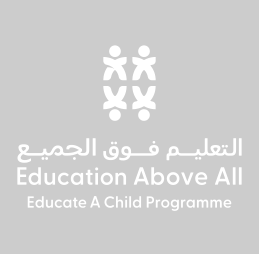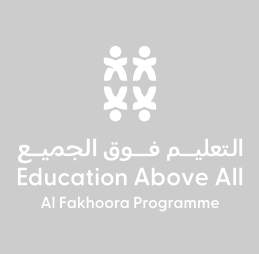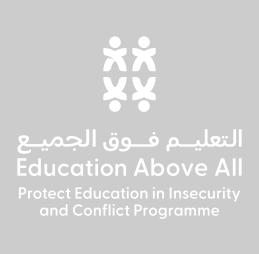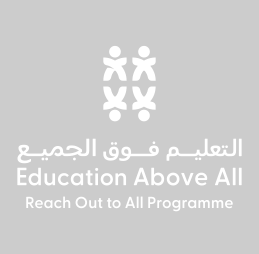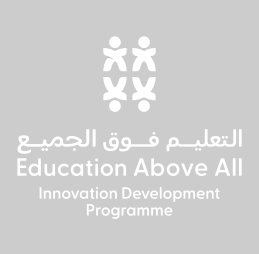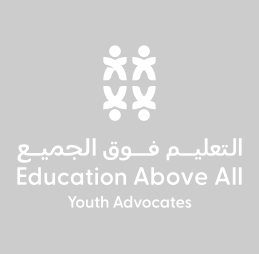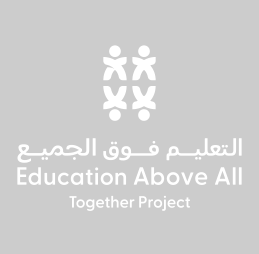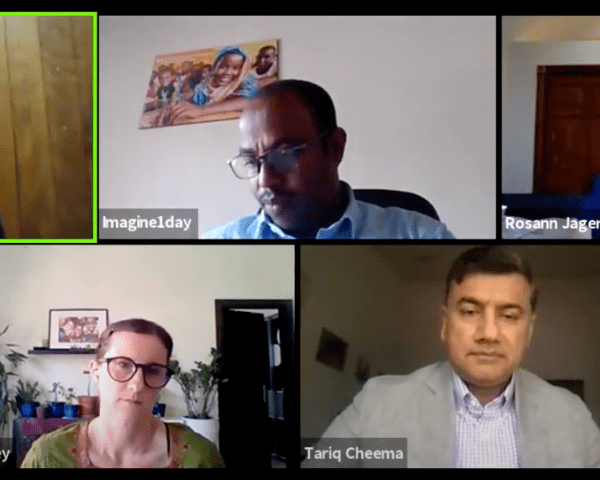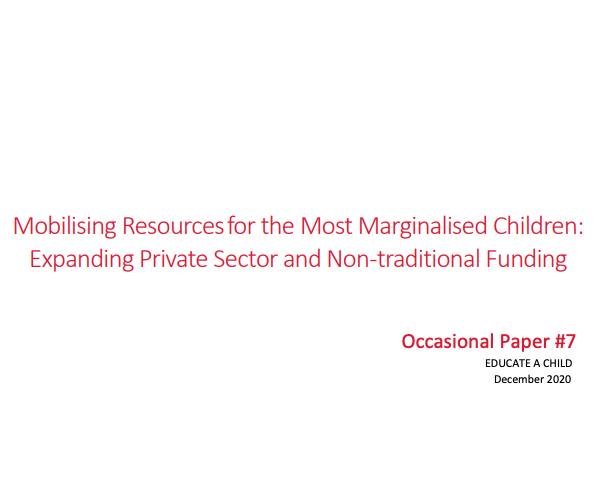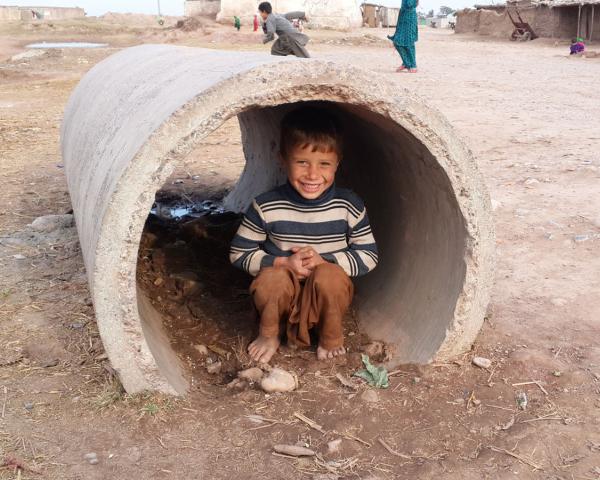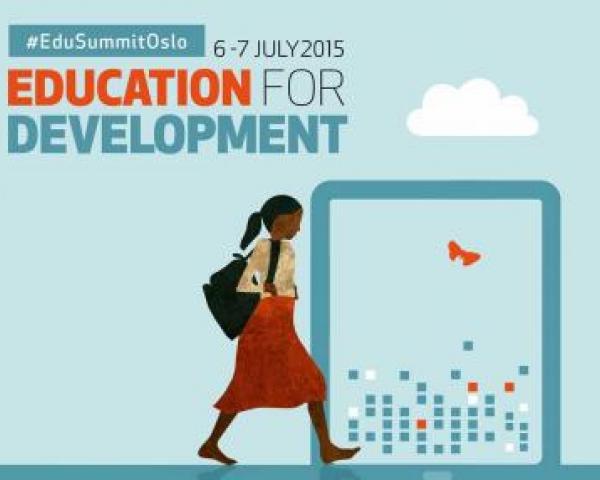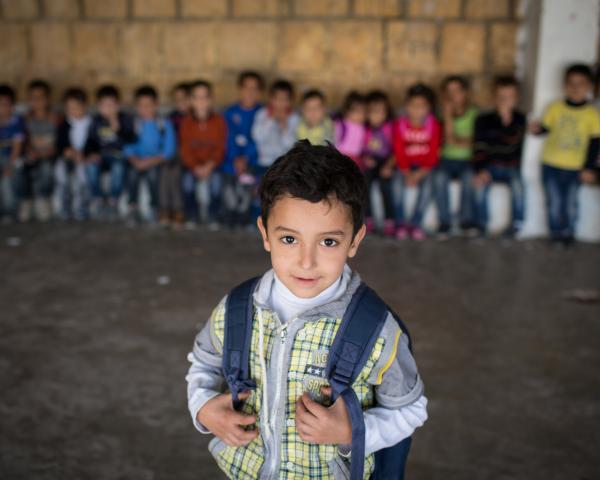EAA hosts a high-level event at the UN HLPF entitled ‘Education and the Trying Times of COVID-19’
The Education Above All Foundation hosted a high-level, virtual side-event entitled ‘Education and the Trying Times of COVID-19’ during the HLPF 2020. The HLPF annual meeting is the core United Nations platform for follow-up and review of the 2030 Agenda for Sustainable Development Goals (SDGs) at the global level. The event was co-organised with the Permanent Mission of the State of Qatar to the UN, the Qatar Fund For Development, the Islamic Solidarity Fund for Development and the Asian Development Bank.
Ministries, partners and experts from around the world, gathered virtually to discuss the impact of COVID-19 on the education for the most marginalised, and reflected on how they can further collaborate, exchange critical information, to mitigate the impact of the pandemic, and help address the financial deficiency to build back better education systems.
The high-level, virtual side-event, included participation from the Permanent Mission of the State of Qatar to the UN, HE Ambassador Sheikha Alya Ahmed Saif Al-Thani; HE Dr Mamadou Tangara, Minister of Foreign Affairs, International Cooperation & Gambians Abroad; HE Mr Khalifa Jassim Al-Kuwari, Director General, Qatar Fund For Development; Ms Stefania Giannini, Assistant Director-General for Education, UNESCO; Mr Stewart Simonson, Assistant Director-General, WHO’s office at the United Nations in New York; Dr Jaime Saavedra Chanduvi, Education Director, The World Bank; and Mr Brajesh Panth, Chief of Education Sector Group, Asian Development Bank.
The education of over 1.7 billion learners has been negatively impacted by the COVID-19 pandemic, compounding the already challenging work of the international education community in ensuring all children have access to a quality primary education. Whilst the world has reeled at the number of children who have had their education interrupted as a result of school closures and the need to increase physical distance between people to protect the health of populations, efforts on ensuring immediate and longer-term, resilient and sustainable solutions have continued.
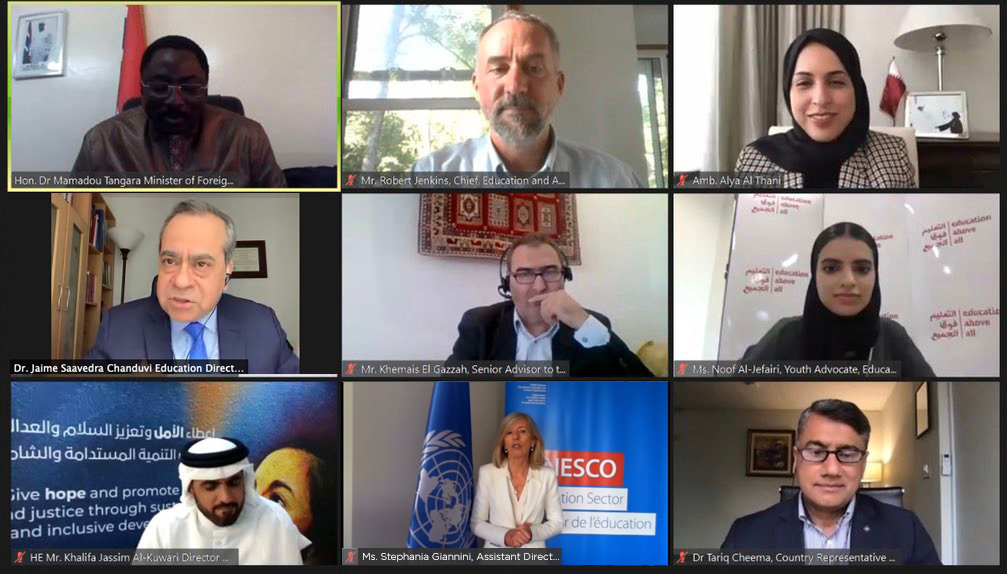
HE Ambassador Sheikha Alya Ahmed Saif Al-Thani, welcomed the panellists at the high-level virtual side-event ‘Education and the Trying Times of COVID-19’.
HE Dr Mamadou Tangara, Minister of Foreign Affairs, International Cooperation & Gambians Abroad, shared his experience and appreciation of the efforts EAA is leading on, and thanked EAA and the Qatar Fund For Development for their commitment.
Expanding on this, HE Mr Khalifa bin Jassim Al-Kuwari, said, “We must rebuild an education system that allows for great innovation, sustainability, equity and inclusion to leave no one behind”.
Following his remarks, Ms Stefania Giannini, Assistant Director-General for Education at UNESCO opened the discussion on the need to build back better, saying, “We must not only do things differently, but do things better. 70 million children and youth are at risk of not returning to school”.
Mr Stewart Simonson, Assistant Director-General, WHO’s office at the United Nations in New York, addressed the impact of COVID-19, “COVID-19 has exposed global health fragility, and exacerbated existing inequalities leaving many vulnerable. The numbers we see are troubling. Globally, we have surpassed 11 million cases”.
Dr Jaime Saavedra Chanduvi, Education Director, The World Bank, highlighted that digital learning goes beyond access to technology, “We must act aggressively to expand connectivity AND make sure teachers have the ability to use digital resources, available at the classroom level & integrated with curriculum”.
Even before COVID-19, tens of millions of children at the primary level were permanently out of school, and there was already a funding gap. COVID-19 is costing governments billions and educational needs are now competing harder with other critical sectors.
During the closing Education Above All stated that “We have been working to develop different financing solutions to meet the education needs of the world’s hardest to reach children. Our work has focused on innovative, sustainable financial partnerships to support education access for of out of school children. Providing access to education for children around the world is not an easy task at the best of times; the COVID-19 pandemic increases pressure on already stretched systems, and threatens to leave more children exposed to the direct and adverse impacts of a life without access to a quality education”.
“The discussion and partnership with QFFD development banks and INGO’s sends a strong message to the world, as we look to build stronger, more sustainable education systems in the wake of COVID-19, that we cannot, and will not aim to go back to ‘normal’. We must take the lessons of COVID-19, work together in partnership, use our expertise, resources and innovation to reach more out of school children and overcome the devastating effects of this pandemic. We will continue to work to provide access to education for the hardest to reach and to achieve SDG4, primary education.”







